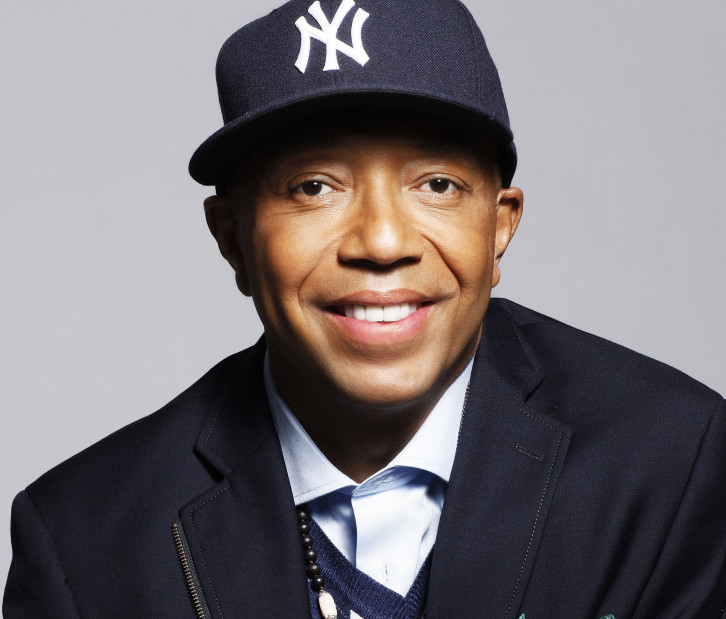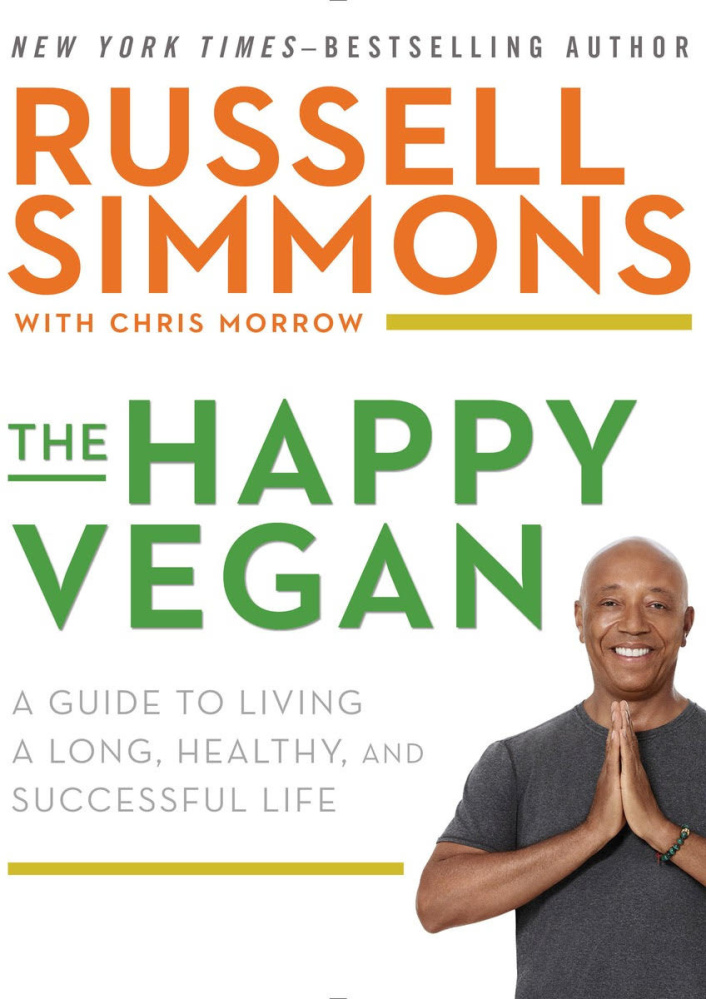Regularly called a visionary, Russell Simmons is a business leader, a trendsetter and a cultural icon. His influence first spread after he cofounded the Def Jam record label in the early 1980s and hip-hop music took hold like wildfire. Later, he launched fashion lines, including Phat Farm, and media companies.
His latest book, “The Happy Vegan: A Guide to Living a Long, Healthy, and Successful Life” hit bookshelves in November.
Simmons grew up in New York City and now lives in Los Angeles. I caught up with him recently by phone as he was leaving New York’s Mercer Hotel in SoHo. He was headed to a radio interview with former heavyweight boxing champ Mike Tyson (a fellow vegan) to talk about “The Happy Vegan” for a piece that will air on a podcast program.
Simmons was quick to tell me his intent in writing the book is to help spark change. He wants to push the “shift in consciousness regarding food and the awareness of the toxicity of animal foods.”
Likewise, he wastes no time in the book laying out his argument that eating vegan “can save your life. Not to mention save the world as well.”
In six chapters, Simmons, 58, covers the three core motivations for eating vegan – health, ethics and the environment. He also dispels misconceptions (veganism is “a change you can make without too much stress to your lifestyle or your pocketbook”) and offers how-to advice (when attending a party, “offer to bring your own dish”).
As in his other works, Simmons’ writing is confident and comfortable, making it easier to swallow the book’s sobering statistics and details about the toll animal agriculture takes on us and our world. For those new to the idea of vegan eating, “The Happy Vegan” offers a concise survey of the food and philosophy.
Before writing “The Happy Vegan,” Simmons penned a series of best-selling books on success, including “Success through Stillness” (about meditation) and “Super Rich: Inside and Out.”
His latest book outlines how vegan eating is one of three elements that make up his formula for a happy life, a lifestyle “centered around a plant-based diet, meditation, and yoga,” he writes.
He goes on to write how the “meat and dairy industries have limited our choices, narrowed our tastes, and taken away our true food traditions.”
When we spoke, I asked him about the loss of these authentic foodways. Simmons said while he was writing the book he researched the diets of African people who were captured and sold as slaves. He discovered that meat-based dishes commonly associated with African American cuisine are a product of slavery, not a reflection of African cooking traditions.
“In almost every part of Africa, they weren’t eating much meat,” Simmons told me. “It was beans and okra. It was not animal products.”
In the book, Simmons isn’t afraid to make strong statements. He compares the current treatment of farm animals to human slavery, writing “both are systems where maximizing profit trumps compassion and empathy.” He goes on to say he is particularly troubled by Christians who say the Bible gives humans dominion over animals and allows us to subject them to cruelty.
“If you’re the type of Christian who believes CAFOs (Confined Animal Feeding Operations) are justified by dominion,” Simmons writes, “then you probably would have been the type of Christian who would have interpreted the Bible as supporting slavery too.”
CAFOs are the industry name for what are called “factory farms” in common parlance.
Simmons told me he participated in Occupy Wall Street because the federal government puts corporations ahead of citizens. He cites the government’s promotion of animal agriculture as particularly troubling. Despite living in a culture that promotes eating animals, Simmons said his vegan ideas are finding a receptive audience.
“My message about a vegan diet is really resonating among hip-hop people,” Simmons said, adding that “artists are always open to new messaging and ideas.”
He notes in the book that when he wrote “Do You” in 2005, he was discouraged from writing about vegan eating and the suffering of farm animals.
“Some 10 years later, there’s been a shift in consciousness,” he writes. “Now instead of being warned to sidestep the subject, I’ve been asked to write an entire book about it.”
Simmons told me his next book project will be a vegan cookbook.
In “The Happy Vegan” he writes how his mother died of cancer and his father of Alzheimer’s – both diseases he blames in part on a diet based on animal foods.
“It’s too late for my parents,” Simmons writes. “But it might not be too late for yours. Or your children. Or your friends. Or you.”
Let “The Happy Vegan” serve as an easy-to-grasp lifeline.
Avery Yale Kamila is a freelance food writer who lives in Portland. She can be reached at:
avery.kamila@gmail.com
Twitter: AveryYaleKamila
Send questions/comments to the editors.




Comments are no longer available on this story